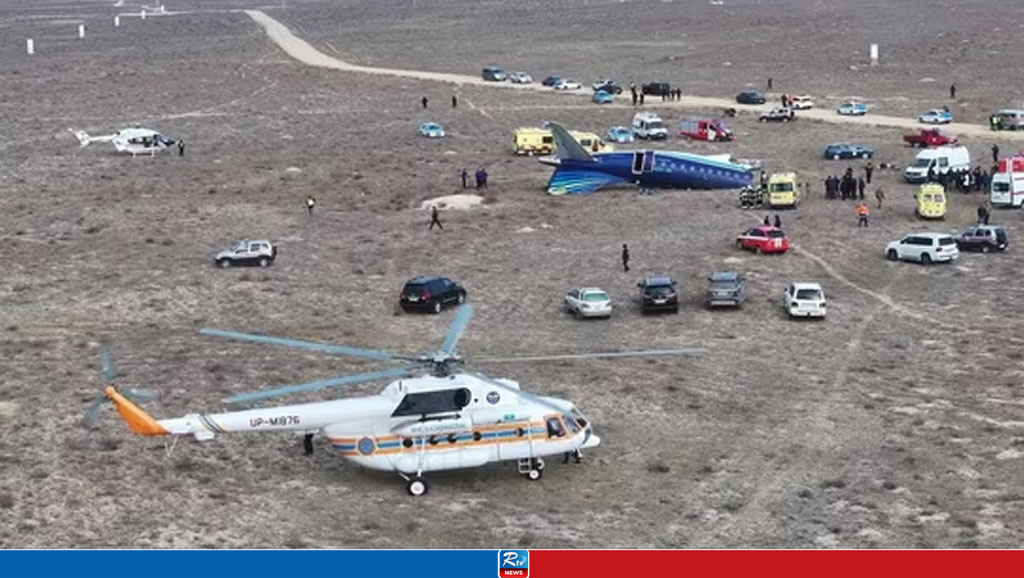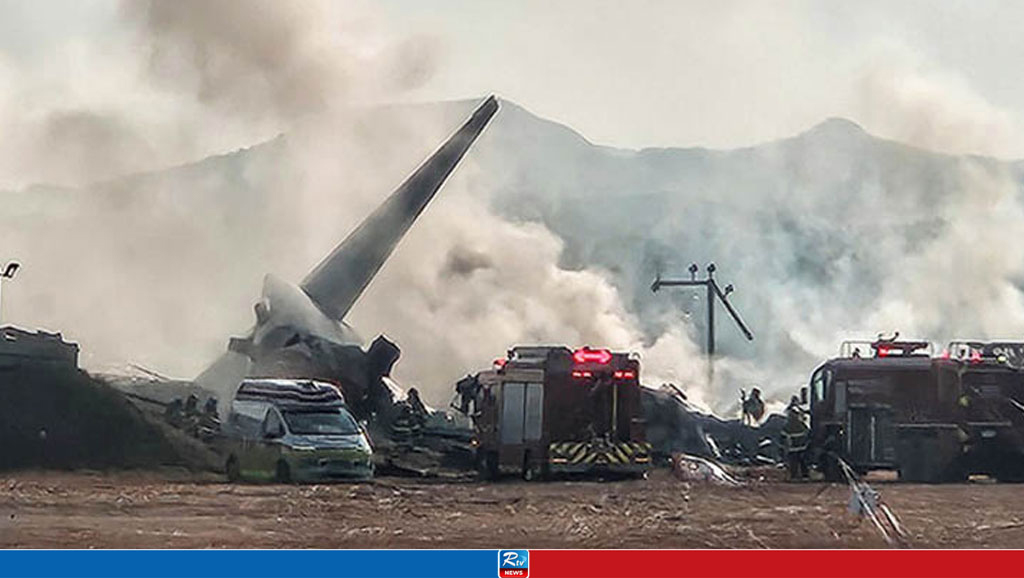COP29: Climate Funding in The Spotlight

The UN climate conference is all about money. Who will pay developing countries for the consequences of climate change? In a year that saw millions of people hit by extreme weather disasters, the annual UN climate summit is taking place in Azerbaijan, a petrostate with little interest in leaving its climate-damaging fossil fuels in the ground.
Azerbaijan has huge untapped renewable energy potential, but around 60% of state revenue comes from fossil fuels and it plans to "markedly increase" oil and gas production in the coming years.
"As the head of a country rich in fossil fuels, of course, we will defend the right of these countries to continue investments and production," said Azerbaijan's President Ilham Aliyev in April at a preparatory meeting for COP29.
Ilham's words hinted at the agenda the nation might set as host of the conference that will bring lawmakers from nearly 200 countries to the capital Baku to negotiate climate action.
How much should developed countries help developing ones?
Alongside drastically cutting emissions, countries face another major negotiating challenge — that of agreeing on how much financial support developing countries should get to help deal with the consequences of a warming world and decarbonize their economies.
Wealthy countries including the USA and Japan as well as European Union member states previously pledged to mobilize $100 billion (€93.3 billion) a year by 2020 to support developing nations. The target was first reached in 2022. But so far, a significant proportion of the funding has come in the form of high-interest loans, resulting in harsh criticism and accusations of broken promises.
Niklas Höhne, a climate policy expert with the New Climate Institute, a German NGO, believes states might agree to a figure of between $200 billion and $700 billion in Azerbaijan.
"That would be a fair financial deal between the wealthier countries responsible for climate change and poorer countries suffering most from climate change," said Höhne.
Developing nations, including India and many African countries, have repeatedly called for annual financing of up to a trillion dollars — a tenfold increase on the current pledge. Industrialized nations have dismissed those figures as unrealistic and want China and oil-rich Gulf states to share the financial burden.
Dispute over who will pick up the climate tab
Since the Industrial Revolution, which started in 18th-century Great Britain and was when people started burning fossil fuels in large quantities, rich countries have historically contributed the most to global warming. But China, for instance, has recently become a major emitter of climate-damaging greenhouse gases.
Still, in official documents, China is labeled a developing country, meaning it is theoretically a recipient of climate financing alongside poorer states that have barely contributed to the climate crisis.
United Arab Emirates (UAE), which hosted the 2023 climate conference, is also officially considered a developing country. Observers saw the petrostate's 2023 pledge to provide climate funding to poorer countries as a glimmer of hope that wealthier developing nations might be willing to share financial responsibility.
During the UAE summit, the global community for the first time agreed to tackle the cause of the climate crisis by "transitioning away" from fossil fuels in the energy system.
Still, the planet continues to warm. Humanity is on track to radically overshoot the 2015 Paris Agreement to keep warming under 1.5 degrees Celsius (2.7 Fahrenheit) compared to pre-industrial times unless fossil fuel use is cut rapidly and drastically.
Current policies would see planetary heating of about 3.2 C by the end of the century.
No climate protection without emissions reduction
"There's a huge disconnect between the rhetoric and the reality when it comes to claiming you'll be 1.5 C aligned and then not meeting one of the central tasks," said Alden Meyer, a senior US and international climate policy analyst at E3G, a Europe-based climate think tank.
The EU, in particular, is pushing for increased funding to developing countries to be linked to more climate protection. At the same time, UAE, Azerbaijan, and next year's climate summit host Brazil all have plans to expand fossil fuel production, continued Meyer. Similar trends can be seen in the USA, Canada, Norway, Australia, and the United Kingdom.
Paris Agreement signatories also must present new climate targets next year, but most have not yet produced a draft, according to Höhne.
Meyer expects that the COP agenda will include calls for industrialized nations to double funding for adaptation to climate change. Adaptation measures could include early warning systems for storms or flooding, coastal protection, green spaces to combat heat in cities, or improved protection for power plants in storm or flood areas. An increase to about $40 billion annually is on the table.
The talks are set to address further developing and implementing the new loss and damage fund, with negotiations expected on upping financing from the initial pledge of around $800 million.
In 2023, the nine worst climate disasters in developing countries caused around $37 billion in damage alone, according to the Heinrich Böll Foundation, a think tank linked to the German Green Party. The debate as to whether China or wealthy oil states should participate in the loss and damage fund will gain traction again at this year's COP, say observers.
US election results, war: Is 1.5 C still achievable?
This year's tug-of-war over money is being exacerbated by the continuing economic difficulties faced by households because of the lingering effects of the COVID-19 pandemic as well as economic instability and Russia's war in Ukraine, which has led to huge increases in global military spending.
Donald Trump's reelection as president of the US, the world's largest economy and second-largest producer of climate-damaging emissions, will also have an impact on negotiations and is cause for concern among climate action advocates.
During his first tenure in office, Trump cast doubt on climate science, quashed a number of environmental laws, and withdrew from the Paris Agreement. During his recent election campaign, he made it clear that if elected for a second term, he would remain an anti-climate action president and that the extraction of coal, oil, and gas would be a priority under his leadership.
"His push to ramp up fossil fuel production, disregard for international agreements, and refusal to provide climate finance will deepen the crisis, endangering lives and livelihoods," said Harjeet Singh of the Fossil Fuel Non-Proliferation Treaty Initiative, a global campaign that aims to stop the expansion of fossil fuel exploitation.
Trump's rollback on the USA's climate commitments threatens to undermine trust in an already crisis-laden international political system, Singh said.
If the world is to limit warming to under 1.5 C as agreed in Paris, global emissions must peak before 2025. The target still could be achieved in time, according to analysts.
Comments
8 Bangladeshi Die in Mediterranean Sea

Azerbaijan Airlines Plane Crashes Near Kazakhstan's Aktau Airport

At Least 40 Killed in Kazakhstan Plane Crash, Report Says

China Launches New Generation Assault Ship 'Sichuan'

Plane Crash in South Korea: 179 Out of 181 Onboard Killed

19 Pakistani Soldiers Killed in Border Clash with Afghan Forces

Devastating Road Accident in Ethiopia: At Least 66 Dead


 Live Tv
Live Tv



